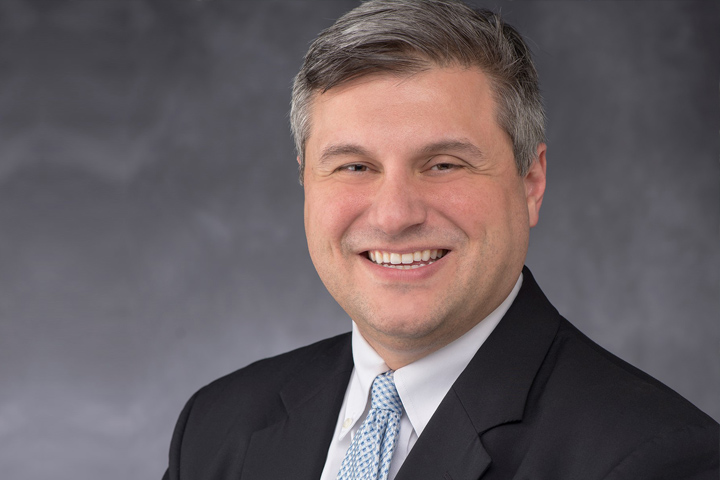Clinical Trial of Immunotherapy Plus Sunshine Vitamin May Help in Pancreatic Cancer Fight

Vitamin D, the so-called sunshine vitamin, promotes strong bones, a healthy blood pressure and can even boost your immune system.
Now, some researchers are looking at a chemically modified version of vitamin D as an agent in the fight against metastatic pancreatic cancer.
Why Vitamin D?
In 2013, researchers at the Salk Institute found that a synthetic derivative of vitamin D could normalize a barrier of cells called stellate cells that seem to shield pancreatic tumors from chemotherapeutic drugs. In theory, normalizing this shield could make pancreatic cancer much more susceptible to therapy. Since then there have been several trials looking at vitamin D and its potential in the fight against pancreatic cancer.
One such study is taking place at HonorHealth Research Institute in Scottsdale, Arizona. The NAPPCG trial (Combination Therapy for Patients With Untreated Metastatic Pancreatic Ductal Adenocarcinoma) relies on two standard-of-care agents for metastatic pancreatic cancer: gemcitabine and nanoparticle albumin bound paclitaxel (nab-paclitaxel). A third drug, a platinum compound called cisplatin, is also part of the regimen. But the trial also adds two novel elements: nivolumab, an immunotherapy drug designed to inhibit proteins that block the body’s immune system from attacking cancer cells, and paricalcitol, which is a vitamin D derivative that researchers hope will extend patients’ survival.
The NAPPCG trial, which will enroll about 25 people, builds upon findings from a prior trial that paired the three-drug combo of gemcitabine, nab-paclitaxel and cisplatin. Results showed that pancreatic tumors completely disappeared in two of the study participants, while tumors shrunk at least 30 percent in 71 percent of the patients in the study.
Whether this new trial proves to be even more effective remains to be seen, but doctors are optimistic.
Early data from the first 10 patients of the study regimen are “very promising,” says NAPPCG lead investigator Dr. Erkut Borazanci, a medical oncologist at HonorHealth System. Borazanci also served as one of the lead investigators on the triple-drug combination trial.
NAPPCG builds upon the collaborative work that was supported by Stand Up To Cancer and the Lustgarten Foundation. “Without good data from the triplet of gemcitabine, nab-paclitaxel and cisplatin we never would have moved on to this phase II study,” Borazanci says. “The hope is that vitamin D will affect the tumor microenvironment, potentially making it a friendlier environment for the other agents, like the checkpoint inhibitor, to do their job.”
Understanding the Microenvironment
The job of pancreatic stellate cells is to fix small injuries to the pancreas by briefly switching to an “on” or activated state when activated cell growth occurs. But when it comes to pancreatic cancer, stellate cells that are located near a tumor remain turned on or activated. It’s this chronic activation that gives pancreatic cancer cells a boost of growth factors. The result: tumor spread, plus the buildup of a wall-like barrier of cells around the tumor. That barrier is what protects the tumor from cancer-fighting drugs, according to the Salk Institute.
Prior research showed that a modified form of vitamin D could turn off this process in the liver, which is known to have vitamin D receptors. The pancreas was not thought to have these receptors but further research showed that indeed stellate cells near a pancreatic tumor did indeed have vitamin D receptors and a modified version of vitamin D could turn off activation, stopping growth and inflammation.
“It was a huge finding because one of our biggest hurdles is getting chemotherapy to a tumor,” says Borazanci. “So from that knowledge of what vitamin D can do we want to push the envelope and see what can be done to make outcomes better for our pancreatic cancer patients.”
Indeed, pushing the envelope is key to pancreatic research and those scientists and clinicians who conduct studies.
“Generally speaking pancreas cancer is a difficult cancer to treat and so when you see people who were once in a lot of pain and suffering terribly have improvement and a better quality of life, it makes everything worthwhile,” says Borazanci, who decided to specialize in medical oncology after witnessing a pancreatic cancer patient’s journey during his medical residency. “I want to bring the research to people who really need the help. That’s the way that we can change lives for the better.”
The NAPPCG clinical trial is sponsored by HonorHealth Research Institute, including collaborators Translational Genomics Research Institute and Bristol-Myers Squibb and through support of the Seena Magowitz Foundation and Mattress Firm.






